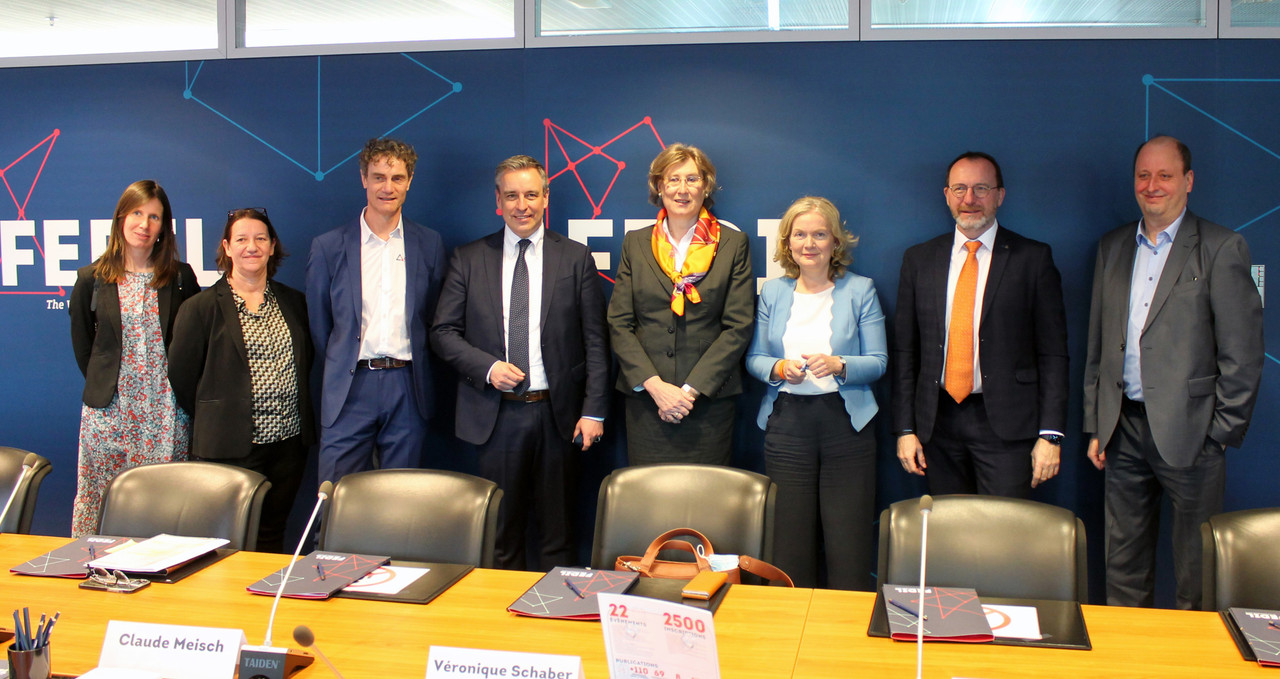The survey shows that over the next two years, 97 companies plan to hire 687 people with ICT skills. In 47% of cases, this will be to compensate for a departure and in 53% of cases to fill newly created positions. "With 7.1 new hires planned per company participating in the survey, this figure is up sharply on last year (5.8). Nevertheless, it must be noted that the rate of creation of new posts (53%) is down compared to 2020 (69%), while the rate of replacement of departures (47%) is the highest since the launch of the survey in 2002", says Fedil.
The crisis has accelerated this shift towards digitalisation. It is therefore very important to find employees and skills according to the needs of companies.
Moreover, the survey shows that in the ICT field, "baccalaureate+2" is the minimum level required by 95.9% of companies. On the other hand, university education is the most sought-after, a requirement for 89.8% of hiring according to forecasts. Even then, more advanced university degrees at master/doctorate level are clearly more sought after (60.4%) than bachelors degrees (29.4%).
Fedil and ABBL welcomed the various initiatives aimed at young people and parents to explain ICT opportunities, such as Hello Future. "This is a very important topic for the future of Luxembourg. Companies need highly qualified employees in technical and topical professions. The crisis has accelerated this change towards digitalisation. It is therefore very important to find employees and skills according to the needs of companies, which is nothing new. Since 2002, Fedil and its partners have been working to identify these needs. Labour costs are what they are in Luxembourg and the solution to be competitive in the long term is to invest in the digitalisation and automation of the economy. To do this, training needs are varied, ranging from initial training to continuing education and including induction training," said , vice-president of Fedil.
A digital reflection in schools
Education minister Claude Meisch recalled the projects put in place by the national education system to introduce digital content at all levels to ensure that every student in Luxembourg acquires digital skills. "It is important that they understand how the digital world works. As a citizen and as a future employee of a company or an administration, it is important to master this digital world," he said.
Since the beginning of the new school year, coding has been taught during playful activities adapted to each cycle at primary school. "Pupils are not on screens or in a computer class, but in activities where they learn to analyse a complex problem and algorithmic thinking,” Meisch emphasised.
Meisch explained that all vocational training courses were being reviewed in order to improve knowledge and content in the digital field, in collaboration with various stakeholders. "Our work is bearing fruit. In 2016 and 2020, we have seen a strong increase in enrolment at university and college level for digital subjects, with an increase of +40%. There were 620 students registered in 2016. In 2020, there will be 896. This is a nice increase. This will not be enough to meet the needs of companies and administrations, but we will continue to work in this direction," said the minister.
1,153 vacancies in the ICT field
"We can make young people aware of digital matters, but it will take 20 years for this to be reflected in the labour market. That is why further training is just as important. Next May, we will be launching a new project called 'Digital learning app' which, in a first phase, will be located in Belval and will welcome employees who wish to deepen their knowledge or acquire digital skills,” Meisch said.
Georges Engel (LSAP), minister of labour, pointed out that the number of vacancies in the ICT sector declared to employment agency Adem has increased by 75% over one year. "In January, 186 new jobs in the ICT sector were registered with Adem. In all, there are 1,153 positions declared open with Adem in the digital sector," Engel explained.

